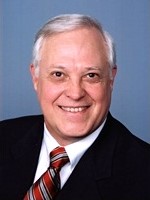Case Study – Single Person Asset Protection
Posted on December 6, 2013 byRick is a single person with no immediate family. After hearing a discussion I did on stacking Limited Liability Companies (LLCs), he wanted to know what he could do as a single person. At the time he owned seven properties. Three had almost no equity. One had over $60,000 equity and the other three varied from $25,000 to $30,000 in equity.
Rick was fully exposed to the liabilities created by ownership as well as management. He indicated he was actively seeking more property. His objective was to acquire roughly 12 properties in the near future. He did not want to risk all he had worked for in one frivolous lawsuit.
First, he needed to insulate himself from the management liability. Management seems to be even a stronger lightening rod that property ownership. By separating management from ownership, any payment for management by the owner becomes earned income. To provide a liability shield and mitigate the tax issues, an S corporation can be used. Plus a corporation provides additional tax-advantaged fringe benefits every entrepreneur should consider. In certain situations a C corporation could be used, but the S corporation suited Rick the best.
The S corporation would contract (important to have a written contract) with the owner. Such a contract should be tailored for the special situation where you control both the owner and the S corporation (such as the one in the Corporate Fortress and LLC & Partnership courses). More than one owner has been tripped up in court when it is pointed out that the S corporation management company had not performed as the realtor-provided management contract required, such as escrows, monthly reporting and payments, etc.
Rick expressed a little concern that in his state management companies must hold a realtor license to manage property for others. He correctly pointed out that the S corporation is doing just this since (if run properly) it is separate and distinct from its owner. This is also true in my state.
However, you need to read the law and the consequences. In most cases, this is a “no harm, no foul” situation since you as the owner of the property or the owner of the entity that owns property, are unlikely to sue the management company that you also own. If this concerned Rick, he could structure the relationship with the S corporation such that it leased the properties from him or the entity that owns properties with the right to sublease.
Now, we turn to actual ownership of the properties. Rick could use single-member LLCs to segregate liabilities between the properties. Maybe put all three of the low equity properties in one which he in turn owns.
Depending on his paranoia level, he may place each of the other properties in its own single-member LLC since each has significant equity. This would provide a liability shield under state law to protect Rick from a liability accruing to the owner of each property.
He would still be protected from the liability for the three properties in the one LLC, but all of the properties could be exposed to a liability occurring on any one. Since there is almost no equity in any of the three, this is not a big trade-off.
But Rick understands that single-member LLCs are not very effective under the “Charging Order” doctrine. Also, single-member LLCs are by default transparent for tax purposes. By using a multi-member LLC, he can get the benefit of the charging order protection and have a separate, low-profile tax return for the LLC. It will not change the taxes he owes as the net numbers will K-1 to his personal return.
But he needs a second member. That can be his S corporation as a 1-5% owner. He may also decide that the S corporation will be the manager of the multi-member LLC. The single-member LLCs would then be owned by the multi-member LLC and in turn the single-member LLCs own the properties.
If land trusts are used, they would simply own the property and in turn be owned by the single-member LLCs.
